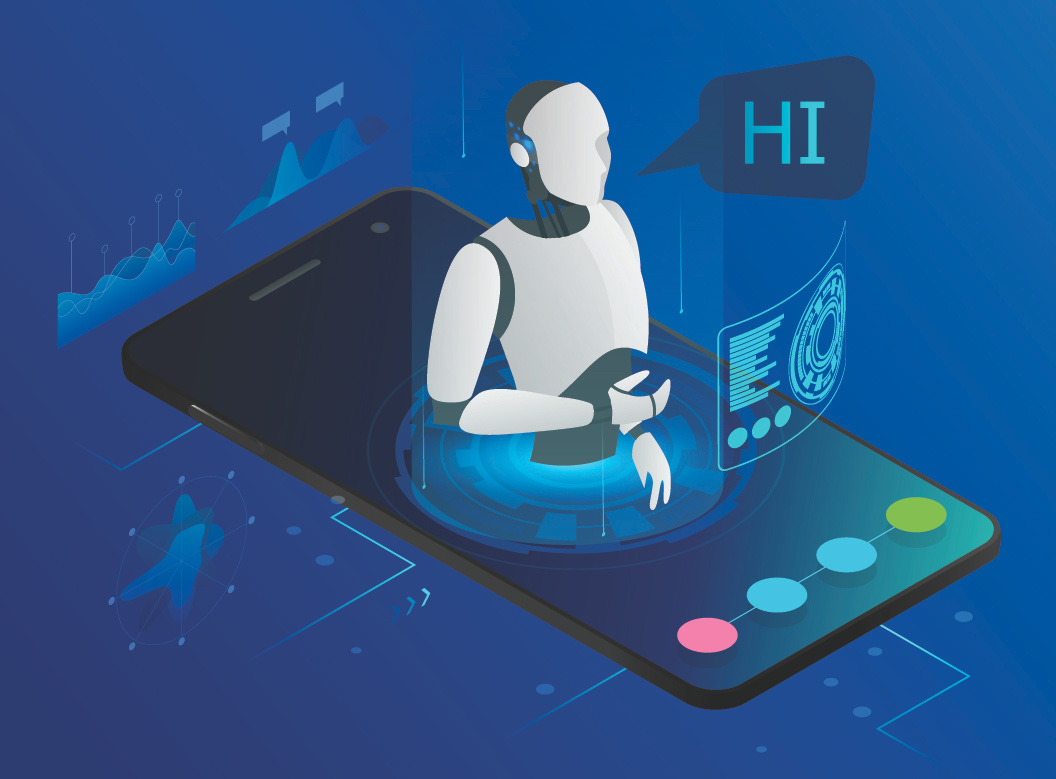An Unexpected Role for AI in the Workplace
A new study suggests it could be important in strengthening and transferring ‘tacit skills.’
WHEN MICHAEL POLANYI, the underappreciated twentieth-century physicist, philosopher, and economist, is remembered nowadays, it is most often for having observed that much of human knowledge, in both practical and abstract matters, is “tacit” rather than explicit. Most of what we know is not written or verbalized anywhere, yet it nonetheless exists as a foundation for our consciously held beliefs, understandings, and impressions. As Polanyi famously put it, we always “know more than we can tell.” For instance, if one asks a physicist to write down how she first perceived the possibility of an important scientific breakthrough, she likely couldn’t do it. More often than not, such insights arrive “all at once” in a flash of imagination combined with existing knowledge and a lot of toil and reflection. This skill for discovery isn’t replicable or transferrable as part of the scientific method. This is Polanyi’s Paradox: that the tacit dimension, foundational to all knowledge, is a domain of the unteachable and untransferable.
Polanyi’s insight about the tacit dimension of what we know is useful for thinking about the intangible qualities, characteristics, and skills that make up a successful student and a desirable employee, often called “soft” or noncognitive skills. Drive, perseverance, and interpersonal skills—which form the basis of learning capacity and often spell the difference between failure and long-term success on the job—are in the domain of tacit knowledge. They are second-nature qualities that are rooted in early childhood and develop slowly based on long-term interpersonal engagement. These deeply embedded and subconscious skills and behaviors are ones we constantly rely on without realizing we are doing it. Like scientific insight, tacit skills are very difficult to explain, replicate, and transfer through formal training processes.
A recent study by a team including Stanford economist Erik Brynjolfsson suggests that we may resolve Polanyi’s Paradox by opening up a new avenue for strengthening tacit soft-skills: AI-enabled chat technology.
Brynjolfsson and his colleagues studied the use of AI chat technology among over 5,000 call-center customer support staff working for a major software provider. Among the workers who used chat tech, productivity increased on average by 14 percent. Newly hired AI-supported workers caught on more quickly, achieving performance levels in two months that normally required half a year of experience to develop. Agents who never used the AI tools resolved 1.7 inquiries per hour; those who used them resolved 2.5 per hour, and average call time for those using AI fell by 5 minutes from a company baseline of 40. Customer support workers handled more calls and resolved more problems with lower rates of “requests for escalations” (“I want to speak to your manager!”). Turnover went down most notably among new workers, which in turn brought down recruitment and training costs, typically between $10,000 and $20,000 per worker.
Perhaps the most important finding from the study is how newer and lesser-skilled workers benefited the most from the use of the technology. While the most highly skilled workers saw no increase in productivity (in fact, the chat tech appears to have reduced their performance slightly with unneeded advice), the lowest-skilled saw productivity rise by 35 percent.
This amounts to a whole lot of good news. Owing to Polanyi’s Paradox, economists concluded decades ago that the tacit knowledge transfer problem entailed permanently low levels of productivity improvement in tasks dominated by tacit skills—including, it seems, high-performing call center staff. Using the distilled and tested strategies of more highly skilled workers in real-time via AI-powered chat-tech, the lower-skilled receive an “angel on the shoulder” to help them gain quickly the flexible interpersonal and problem-solving skills that might otherwise take months or years to learn. If we consider tacit-skill deficits as a type of cognitive impairment, this amounts to a workplace “accommodation” of the first order, potentially opening up jobs to individuals who might otherwise flounder and fail.
The benefits here are obvious: Customers can expect to interact with faster, more efficient, and more effective workers who provide better service, while workers using the chat-tech gain greater access to opportunity, especially if they’re starting out with lower skills. What will happen to the highly skilled call-center workers who lose their advantage as the lower-skilled “level up”? The most likely answer is businesses will push them further along the value chain to other more complex tasks, as happened to bank tellers after the rise of ATMs.
One of the more important potential downsides to chat tech is how difficult it may be to attach a value to the intellectual property of the high performers whose work powers it. The soft skills of these workers are in short supply and dominate the list of qualities that employers are seeking in workers. Should businesses purchase this IP from these employees or pay them royalties for its use? In a sane world, the answer would be yes. It also seems reasonable that job-training organizations would want to license this tacit knowledge for use in online training programs to help even more workers overcome soft-skill gaps.
As we work on this challenge, we shouldn’t lose sight of the promise this technology holds for resolving the thorniest problem in workforce development: soft-skill deficits. Chat-driven soft-skill coaches could help unravel this problem and close the gap between workers and jobs. We should also draw some reassurance from this study for the way it follows the pattern for automation-driven economic advancement. Rather than leading toward human obsolescence, technology helps remove friction from economic transactions, increases productivity, and frees up creativity and capacity for higher-level work. Amid the fretfulness about AI, this early review of real-world impact tells us there’s reason for hope.




